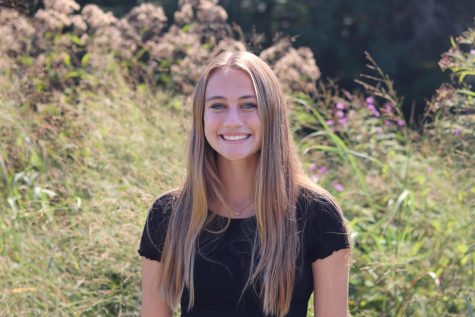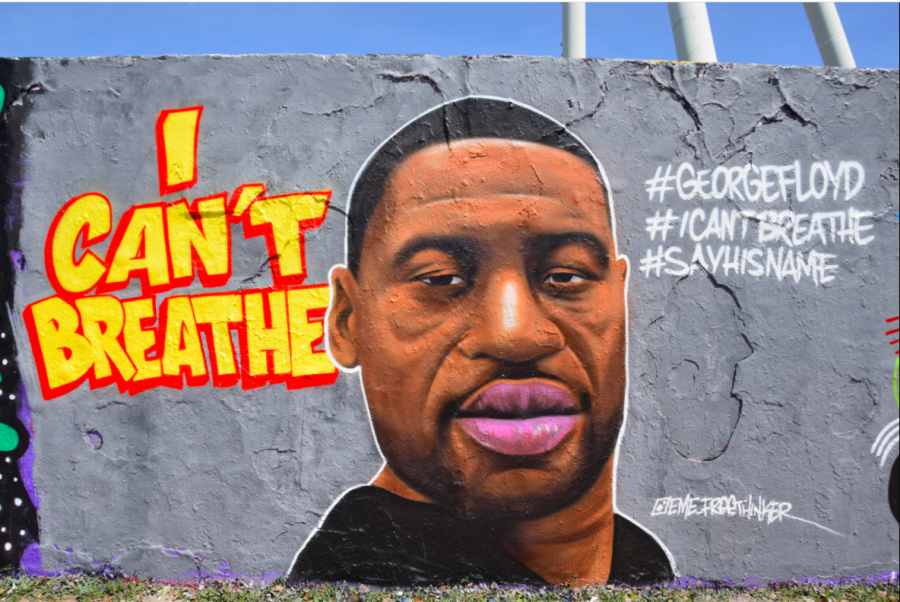Opinion: Derek Chauvin’s guilty verdict isn’t the end of the fight for racial justice
Credit: Courtesy of: Flickr user Singlespeedfahrer
WSPN’s Delia Caulfield discusses the verdict of former Minneapolis police officer, Derek Chauvin and the trial’s affect on the future of achieving racial justice.
Last May, our country watched former Minneapolis police officer Derek Chauvin kneel on George Floyd’s neck for nine minutes and twenty-nine seconds, ultimately killing him. This event gained national coverage and sparked an uprising in recognition of racial inequality, especially at the hands of law enforcement. In the months following Floyd’s death, Black Lives Matter protests occurred all across the nation, advocating for equality and justice.
April 20, 2021, almost a year after Floyd’s death, our country relived this event as we watched Chauvin’s trial take place. Like many others, I anxiously awaited the verdict, which I assumed would be announced early due to the overwhelming evidence against Chauvin. Eventually, the jury announced the verdict after ten hours of jury deliberation. This came as a surprise to me. Yes, ten hours is a fairly short deliberation time in response to other trials; however, I was confused as to why the decision wasn’t instant. I mean, how could they not immediately recognize his guilt?
There’s a common misconception surrounding the terms of accountability and justice and how they relate to one another. Derek Chauvin was held accountable for his actions by being convicted for his crimes. However, holding him accountable hasn’t stopped blatant racism and police brutality against black people.
To achieve justice, we have to take significant steps to reform racial bias and protect the rights of every individual. Although many have actively advocated for racial equality, achieving justice is, unfortunately, easier said than done. A prominent example of this is the convictions of black individuals who didn’t commit a crime. According to the Oakland Police Department’s 2016-18 Racial Impact Report, in 2016, 68% percent of individuals pulled over for “reasonable suspicion,” were African Americans. This is almost double the number of African Americans pulled over for probable cause in the same year. The significance of the term reasonable suspicion is that in most cases, it doesn’t require more than 50% certainty that the accused is guilty of a crime.
This example of racial profiling contributes to the phrases such as “Driving while Black,” which defines how black people are likely to be pulled over simply because of their race. Further, George Floyd was stopped allegedly for possessing counterfeit money; however, I doubt this was the real reason why Chauvin deemed it necessary to kneel on Floyd’s neck for nine whole minutes. We live in a country where an incredibly corrupt system dictates who lives and who dies, and we have yet to gain justice for all those affected by the system.
Although accountability isn’t the same as justice, it is a crucial step in achieving it. Even though convicting Chauvin on all three counts is a valid verdict, many were unsure of the outcome of the trial in the days leading up to the verdict. I found this evident in the reactions of people across the country in the days leading up to the announcement of the verdict. Many news stations broadcasted people boarding up their businesses, preparing for riots and looting near their stores. If Chauvin wasn’t found guilty, there could have been protests similar to those occurring at some of the Black Lives Matter protests during the summer.
I understand the expectations for an acquittal. Police officers are rarely charged or prosecuted for committing unnecessary violent actions. According to data from Phillip Matthew Stinson, a criminal justice expert at Bowling Green State University, less than 2% of police officers involved in fatal shootings are ultimately arrested and put on trial. So even though the verdict was just, it came as a surprise and relief to many. This trial paved the way for change.
Ultimately, Chauvin was held accountable for his actions and convicted for his crimes. However, there is much work to be done to achieve justice for every black individual unjustly killed by law enforcement. The officers responsible for the deaths of individuals such as Breonna Taylor and Elijah McClain have yet to be held fully accountable for their actions, and it’s painful to see our nation turn a blind eye to holding these individuals responsible. As a country, it is our duty to improve our law enforcement into a system without racial bias, so that a “suspicious” man simply standing on the street doesn’t lose his life.
Your donation will support the student journalists of Wayland High School. Your contribution will allow us to purchase equipment, cover our annual website hosting costs and sponsor admission and traveling costs for the annual JEA journalism convention.

Delia Caulfield, Class of 2023, is a third year reporter and sports editor for WSPN. She is the president of Student Council and is on the high school’s...





![Last Wednesday, the Wayland School Committee gathered to discuss a number of topics regarding the health curriculum and Innovation Career Pathway course. Another large topic of conversation was the ways to potentially mitigate distracting cell phone usage. "These [phones] are going to distract your learning and social relationships," Superintendent David Fleishman said. "That's concrete right there."](https://waylandstudentpress.com/wp-content/uploads/2025/06/Screenshot-2025-06-04-at-9.49.31 PM-1200x886.png)



























![Troy Hoyt finishes the Boston Marathon, running for the Hoyt Foundation. T. Hoyt is the son of Hoyt Foundation CEO Russ Hoyt.
“[Running a marathon] might seem like a big thing, when it’s presented to you at first, but if you break it up and just keep telling yourself, “Yes, you can,” you can start chipping away at it. And before you know it, you’ll be running the whole 26 miles, and you won’t even think twice about it.” T. Hoyt said.](https://waylandstudentpress.com/wp-content/uploads/2025/04/C36E8761-1CBB-452E-9DF2-543EF7B1095E_1_105_c.jpeg)











































